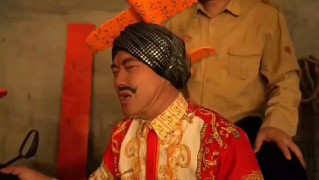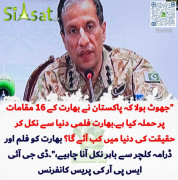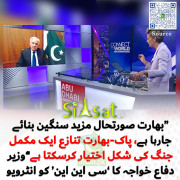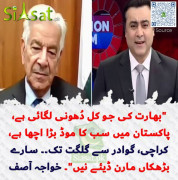ishwaq
Minister (2k+ posts)
The controversial whistle-blowing site Wilileaks has released a cache of 250,000 secret messages sent by US diplomatic staff. Here are some of the key issues the documents reveal, as reported by the New York Times and Guardian newspapers.
Pakistan stand-off
The cables show US concern over radioactive material in nuclear power stations in Pakistan, with fears it could be used in terror attacks. They reveal the US has been attempting to remove highly enriched uranium from a research reactor in Pakistan since 2007.
In a May 2009 cable, US ambassador Anne W Patterson says Pakistan had refused a visit from US experts. She quotes a Pakistani officials as saying removing the fuel would be seen in Pakistan "as the United States taking Pakistan's nuclear weapons".
China hacking
There is concern over the alleged growing use of large scale computer hacking by the Chinese government. Cables reports claims that a network of hackers and private security experts has been employed by China since 2002and that it has hacked into US government and business computers, those of Western allies and the Dalai Lama.
The cables quote a Chinese contact telling the US embassy in Beijing that the Chinese government had been behind the hacking of Google's computer systems in the country in January.
Iran attack
Several Arab leaders and their representatives are quoted as urging the US to carry out an attack on Iran to bring an end to its suspected nuclear weapons programme.
King Abdullah of Saudi Arabia is reported to have "frequently exhorted" the US to attack Iran in order to bring an end to its nuclear programme.
In a report of a 2008 meeting with US General David Petraeus, the Saudi ambassador to Washington, Adel al-Jubeir, said King Abdullah wanted the US to "to cut the head off the snake".
King Hamad bin Isa al-Khalifa of Bahrain is reported to have told the US to stop Iran "by whatever means necessary", while the crown prince of Abu Dhabi, Sheikh Mohammad bin Zayed, told the US he believed Iranian President Mahmoud Ahmadinejad was "going to take us to war".
Biometric spying on UN
A cable to US diplomats issued under US Secretary of State Hillary Clinton's name tells them to collect "biographic and biometric" information - including iris scans, DNA samples and fingerprints - on key officials at the UN. They are also ordered to find credit card details, email addresses and passwords and encryption keys used for computer networks and in official communications.
The officials covered include "undersecretaries, heads of specialised agencies and their chief advisers, top SYG [secretary general] aides, heads of peace operations and political field missions, including force commanders".
At least nine similar directives covering various countries are included in the Wikileaks release, both under the name of Mrs Clinton and her predecessor, Condoleezza Rice.
Korea plans
US and South Korean officials have discussed plans for a united Korea, should North Korea collapse.
The US ambassador to Seoul said South Korea would consider offering commercial incentives to China to "help salve" Beijing "concerns about living with a reunified Korea".
Guantanamo
The cables appear to reveal discussions between various countries on whether they would take prisoners released from the Guantanamo Bay detention facility.
Slovenia is offered the chance to meet President Barack Obama if it takes a prisoner, while Kiribati, in the South Pacific, is offered millions of dollars of incentives. Brussels is told taking prisoners could be "a low-cost way for Belgium to attain prominence in Europe".
World leaders
Various world leaders are covered by the documents - showing the diplomats' less than flattering views of them.
Italian Prime Minister Silvio Berlusconi is referred to as "feckless, vain, and ineffective as a modern European leader" by a US diplomat in Rome.
In 2008, the Moscow embassy describes Russian President Dmitry Medvedev as playing "Robin to (Prime Minister Vladimir Putin's) Batman.
The cables also comment on the extremely close relationship between Mr Berlusconi and Mr Putin.
North Korea's Kim Jong-il is a "flabby old chap" suffering from trauma from a stroke, while Iranian President Mahmoud Ahmadinejad is referred to as "Hitler".
South Africa's international relations and cooperation minister refers to President Robert Mugabe of Zimbabwe as "the crazy old man".
Pakistan stand-off
The cables show US concern over radioactive material in nuclear power stations in Pakistan, with fears it could be used in terror attacks. They reveal the US has been attempting to remove highly enriched uranium from a research reactor in Pakistan since 2007.
In a May 2009 cable, US ambassador Anne W Patterson says Pakistan had refused a visit from US experts. She quotes a Pakistani officials as saying removing the fuel would be seen in Pakistan "as the United States taking Pakistan's nuclear weapons".
China hacking
There is concern over the alleged growing use of large scale computer hacking by the Chinese government. Cables reports claims that a network of hackers and private security experts has been employed by China since 2002and that it has hacked into US government and business computers, those of Western allies and the Dalai Lama.
The cables quote a Chinese contact telling the US embassy in Beijing that the Chinese government had been behind the hacking of Google's computer systems in the country in January.
Iran attack
Several Arab leaders and their representatives are quoted as urging the US to carry out an attack on Iran to bring an end to its suspected nuclear weapons programme.
King Abdullah of Saudi Arabia is reported to have "frequently exhorted" the US to attack Iran in order to bring an end to its nuclear programme.
In a report of a 2008 meeting with US General David Petraeus, the Saudi ambassador to Washington, Adel al-Jubeir, said King Abdullah wanted the US to "to cut the head off the snake".
King Hamad bin Isa al-Khalifa of Bahrain is reported to have told the US to stop Iran "by whatever means necessary", while the crown prince of Abu Dhabi, Sheikh Mohammad bin Zayed, told the US he believed Iranian President Mahmoud Ahmadinejad was "going to take us to war".
Biometric spying on UN
A cable to US diplomats issued under US Secretary of State Hillary Clinton's name tells them to collect "biographic and biometric" information - including iris scans, DNA samples and fingerprints - on key officials at the UN. They are also ordered to find credit card details, email addresses and passwords and encryption keys used for computer networks and in official communications.
The officials covered include "undersecretaries, heads of specialised agencies and their chief advisers, top SYG [secretary general] aides, heads of peace operations and political field missions, including force commanders".
At least nine similar directives covering various countries are included in the Wikileaks release, both under the name of Mrs Clinton and her predecessor, Condoleezza Rice.
Korea plans
US and South Korean officials have discussed plans for a united Korea, should North Korea collapse.
The US ambassador to Seoul said South Korea would consider offering commercial incentives to China to "help salve" Beijing "concerns about living with a reunified Korea".
Guantanamo
The cables appear to reveal discussions between various countries on whether they would take prisoners released from the Guantanamo Bay detention facility.
Slovenia is offered the chance to meet President Barack Obama if it takes a prisoner, while Kiribati, in the South Pacific, is offered millions of dollars of incentives. Brussels is told taking prisoners could be "a low-cost way for Belgium to attain prominence in Europe".
World leaders
Various world leaders are covered by the documents - showing the diplomats' less than flattering views of them.
Italian Prime Minister Silvio Berlusconi is referred to as "feckless, vain, and ineffective as a modern European leader" by a US diplomat in Rome.
In 2008, the Moscow embassy describes Russian President Dmitry Medvedev as playing "Robin to (Prime Minister Vladimir Putin's) Batman.
The cables also comment on the extremely close relationship between Mr Berlusconi and Mr Putin.
North Korea's Kim Jong-il is a "flabby old chap" suffering from trauma from a stroke, while Iranian President Mahmoud Ahmadinejad is referred to as "Hitler".
South Africa's international relations and cooperation minister refers to President Robert Mugabe of Zimbabwe as "the crazy old man".































